VW T-Cross VS Hyundai i30 – Specs, Efficiency & Price Comparison
Which model is the better choice – the VW T-Cross or the Hyundai i30? We compare performance (150 HP vs 140 HP), boot capacity (455 L vs 395 L), efficiency (5.40 L vs 5.70 L), and of course, the price (20900 £ vs 24000 £).
Find out now which car fits your needs better!
The VW T-Cross (SUV) is powered by a Petrol engine and comes with a Manuel or Automatic transmission. In comparison, the Hyundai i30 (Hatchback) features a Petrol or Petrol MHEV engine and a Manuel or Automatic gearbox.
When it comes to boot capacity, the VW T-Cross offers 455 L, while the Hyundai i30 provides 395 L – depending on what matters most to you. If you’re looking for more power, you’ll need to decide whether the 150 HP of the VW T-Cross or the 140 HP of the Hyundai i30 suits your needs better.
There are also differences in efficiency: 5.40 L vs 5.70 L. In terms of price, the VW T-Cross starts at 20900 £, while the Hyundai i30 is available from 24000 £.
Compare all the key specs now and find out which model fits your lifestyle best!
In the compact car arena, the Hyundai i30 brings a refined and sporty edge with its sleek design and impressive fuel efficiency, making it an attractive option for city commuters. Meanwhile, the VW T-Cross offers a higher driving position and a more rugged appeal, appealing to those who crave a versatile crossover experience with ample cargo space. Both vehicles deliver exceptional reliability; however, choosing between the two often boils down to personal preference regarding style and utility.
VW T-Cross
The VW T-Cross stands out as a versatile compact SUV that combines practicality with style. Its interior design offers a spacious and flexible layout, ideal for both city driving and weekend adventures. With its modern infotainment system, the T-Cross ensures drivers and passengers stay connected throughout their journeys.
details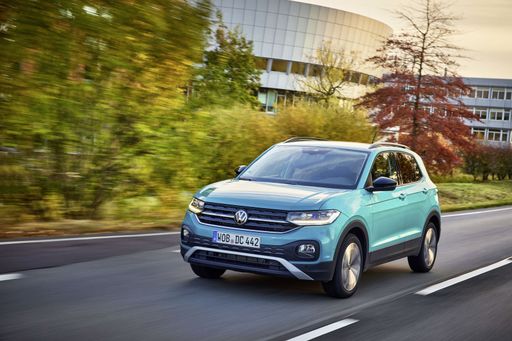 @ Volkswagen
@ Volkswagen
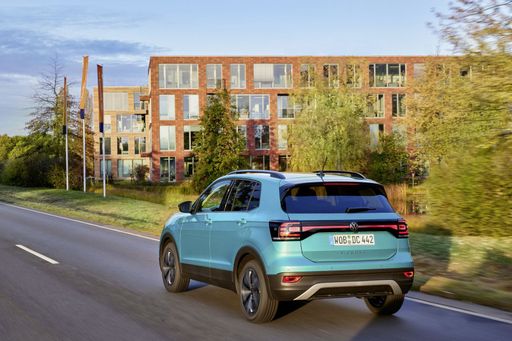 @ Volkswagen
@ Volkswagen
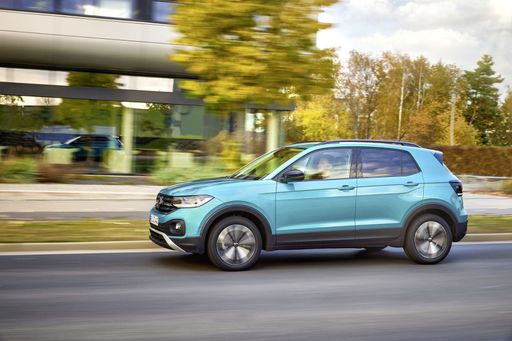 @ Volkswagen
@ Volkswagen
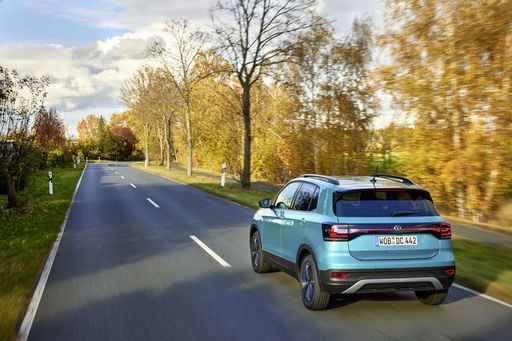 @ Volkswagen
@ Volkswagen
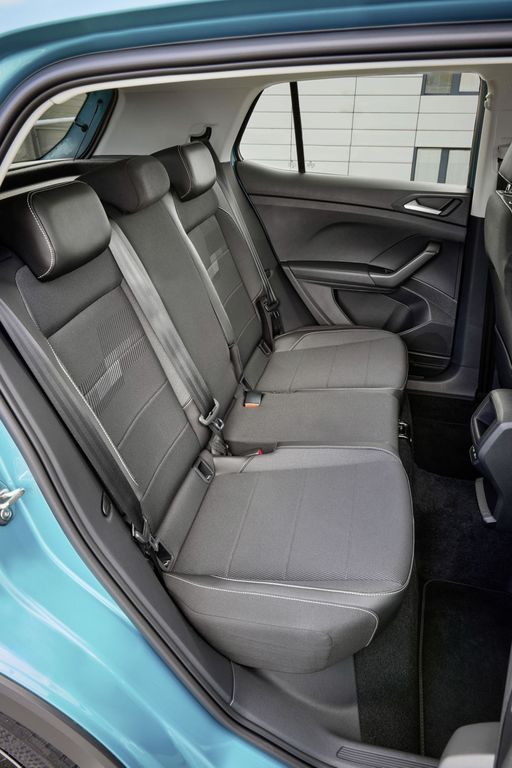 @ Volkswagen
@ Volkswagen
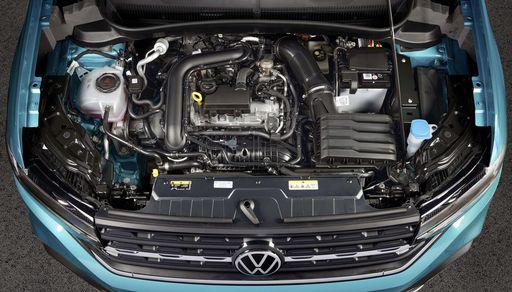 @ Volkswagen
@ Volkswagen
Hyundai i30
The Hyundai i30 stands out in the hatchback segment with its sleek design and modern features. It offers a comfortable ride with a well-crafted interior that caters to both driver and passengers. With its emphasis on safety and technology, the i30 provides a balanced driving experience suitable for urban and suburban environments.
details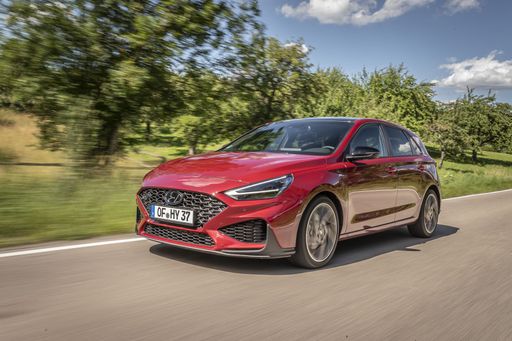 @ hyundai.news
@ hyundai.news
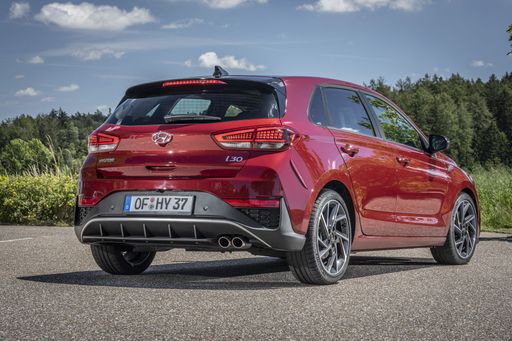 @ hyundai.news
@ hyundai.news
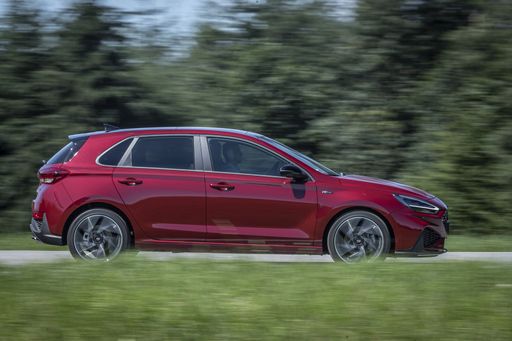 @ hyundai.news
@ hyundai.news
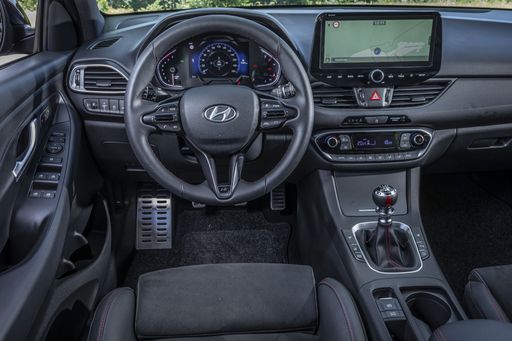 @ hyundai.news
@ hyundai.news
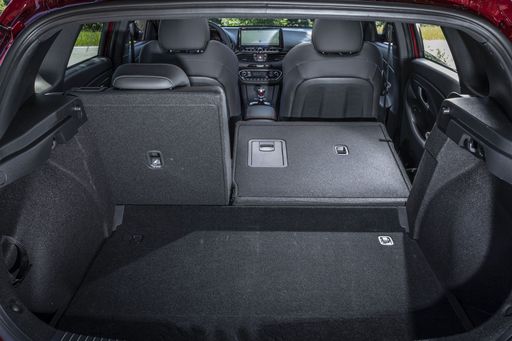 @ hyundai.news
@ hyundai.news
Hyundai i30 vs. VW T-Cross: A Battle of the Categories
In the ever-evolving automotive world, buyers today seek a blend of performance, economy, and features that suit their diverse lifestyle needs. When it comes to compact cars, the Hyundai i30 and the VW T-Cross have established themselves as serious contenders. But how do they stack up against each other in terms of technical prowess and innovative features? Let’s dive into this intriguing comparison.
Design and Build
The Hyundai i30, a compact hatchback, exudes a sleek aesthetic with dimensions measuring 4340 mm in length, 1795 mm in width, and 1455 mm in height. It's designed to offer a practical yet sporty look. On the other hand, the VW T-Cross, categorized as an SUV, features a taller stance with a length of 4127 mm, width of 1784 mm, and height of 1573 mm. Its design mantra integrates the robust flair typical of SUVs with an urban charm. While both vehicles accommodate five passengers comfortably, the T-Cross boasts a more generous trunk capacity of 455 liters against the i30's 395 liters, favoring those in need of extra cargo space.
Performance and Engine Options
The Hyundai i30 offers a range of engines, including petrol and a mild-hybrid petrol option, with power outputs ranging from 100 HP to 140 HP. With transmission choices that include a manual gearbox and a dual-clutch automatic, driving styles are well catered to. The quickest of the lineup sprints from 0 to 100 km/h in 9.6 seconds, aligning performance with practicality.
Enter the VW T-Cross, also petrol-powered, delivering power from 95 HP up to 150 HP. The T-Cross offers brisk acceleration, particularly with its top engine model reaching 100 km/h in just 8.4 seconds. This SUV’s power is complemented by a dynamic dual-clutch automatic transmission option that boosts its urban adaptability.
Efficiency and Environmental Considerations
Fuel efficiency is a common ground between these contenders. The Hyundai i30 achieves a consumption rate as low as 5.6 L/100km, with CO2 emissions ranging from 126 to 133 g/km. As for the T-Cross, it matches the i30’s efficiency starting at 5.6 L/100km, with CO2 emissions stretching between 127 and 135 g/km. Both models fall into the CO2 efficiency class D, reflecting their status in the emission-conscious landscape.
Technical Innovations and Features
Hyundai's i30 integrates modern tech with its hybrid engine offering, appealing to those seeking both power and environmental consciousness. Meanwhile, the VW T-Cross capitalizes on a slightly more advanced tech suite, promising an intuitive driving experience with its dual-clutch automatic transmission—a boon for city drivers.
Conclusion: Choosing Your Path
The decision between the Hyundai i30 and the VW T-Cross ultimately hinges on individual preferences and lifestyle needs. Those leaning towards a compact, sporty package might gravitate to the i30, while others who prefer an elevated driving position and more cargo space could find the T-Cross more appealing. Each vehicle brings a unique balance of performance, innovation, and practicality, ensuring that buyers find a fitting companion in either option.

|

|
|
|
|
Costs and Consumption |
|
|---|---|
|
Price
20900 - 31300 £
|
Price
24000 - 29300 £
|
|
Consumption L/100km
5.4 - 6 L
|
Consumption L/100km
5.7 - 6 L
|
|
Consumption kWh/100km
-
|
Consumption kWh/100km
-
|
|
Electric Range
-
|
Electric Range
-
|
|
Battery Capacity
-
|
Battery Capacity
-
|
|
co2
124 - 136 g/km
|
co2
130 - 136 g/km
|
|
Fuel tank capacity
40 L
|
Fuel tank capacity
50 L
|
Dimensions and Body |
|
|---|---|
|
Body Type
SUV
|
Body Type
Hatchback
|
|
Seats
5
|
Seats
5
|
|
Doors
5
|
Doors
5
|
|
Curb weight
1267 - 1338 kg
|
Curb weight
1291 - 1407 kg
|
|
Trunk capacity
455 L
|
Trunk capacity
395 L
|
|
Length
4127 mm
|
Length
4340 mm
|
|
Width
1784 mm
|
Width
1795 mm
|
|
Height
1573 mm
|
Height
1455 mm
|
|
Payload
463 - 480 kg
|
Payload
463 - 509 kg
|
Engine and Performance |
|
|---|---|
|
Engine Type
Petrol
|
Engine Type
Petrol, Petrol MHEV
|
|
Transmission
Manuel, Automatic
|
Transmission
Manuel, Automatic
|
|
Transmission Detail
Schaltgetriebe, Automat. Schaltgetriebe (Doppelkupplung)
|
Transmission Detail
Schaltgetriebe, Automat. Schaltgetriebe (Doppelkupplung)
|
|
Drive Type
Front-Wheel Drive
|
Drive Type
Front-Wheel Drive
|
|
Power HP
95 - 150 HP
|
Power HP
100 - 140 HP
|
|
Acceleration 0-100km/h
8.4 - 11.3 s
|
Acceleration 0-100km/h
9.6 - 13.1 s
|
|
Max Speed
180 - 200 km/h
|
Max Speed
178 - 197 km/h
|
|
Torque
175 - 250 Nm
|
Torque
172 - 253 Nm
|
|
Number of Cylinders
3 - 4
|
Number of Cylinders
3 - 4
|
|
Power kW
70 - 110 kW
|
Power kW
74 - 103 kW
|
|
Engine capacity
999 - 1498 cm3
|
Engine capacity
998 - 1482 cm3
|
General |
|
|---|---|
|
Model Year
2024
|
Model Year
2024
|
|
CO2 Efficiency Class
D, E
|
CO2 Efficiency Class
D, E
|
|
Brand
VW
|
Brand
Hyundai
|
VW T-Cross
The VW T-Cross: A Compact SUV with a Punch
Volkswagen’s T-Cross is stamped as one of the most dynamic models in its segment, combining compact dimensions with versatile features. Designed to bring the SUV experience to an everyday environment, the T-Cross ensures both urban convenience and a robust driving performance. Let's delve deeper into its technical specifications and innovative offerings.
Efficient Powertrains and Performance
Under the hood, the VW T-Cross harnesses efficient powertrains including several petrol engine options, ranging from a modest 95 PS to a more dynamic 150 PS. The model's engine configurations offer either manual or automatic transmission options, coupled with a front-wheel-drive system. These specifications aim to strike a balance between spirited driving and fuel efficiency.
The T-Cross comes with a turbocharged 1.0-litre or 1.5-litre TSI engine, equipped with cylinder deactivation (ACT) technology, enhancing fuel economy and reducing emissions. The engines produce a torque range from 175 to 250 Nm, making everyday driving smooth and responsive.
Fuel Efficiency and Environmental Considerations
The VW T-Cross stands out for its commendable fuel consumption figures, running between 5.6 to 6 litres per 100 km. This classifies it within a respectable CO2 efficiency class D, making it an appealing choice for drivers conscious of both their budgets and environmental footprint. The CO2 emissions range from 127 to 135 g/km, reflecting Volkswagen’s commitment to sustainability.
Design and Utility
Sporting a compact design, the T-Cross measures 4127 mm in length, 1784 mm in width, and 1573 mm in height, offering easy manoeuvrability coupled with an elevated driving position. The SUV hosts a 455-litre boot space, providing ample room for personal belongings or shopping expeditions. Priding itself on practical utility, it can comfortably seat five passengers and supports a maximum load capacity of up to 480 kg.
Comfort and Technology
The T-Cross comes available in various trim levels, such as the GOAL, Life, R-Line, and Style, each offering distinct features tailored to customer preferences. Connectivity and infotainment systems are given priority with the availability of a touchscreen display, ensuring convenience through seamless smartphone integration, navigation systems, and a suite of driver assistance features.
A Conclusion on the VW T-Cross
The VW T-Cross is an embodiment of modern ingenuity within the compact SUV market. It harmonises performance with practicality and presents a modernistic approach to urban driving. Whether you seek efficiency, cutting-edge technology, or ample space to accommodate daily activities, the T-Cross makes a compelling proposition. With a pricing bracket spanning from €24,355 to €36,530, the T-Cross caters to a broad array of budgets while promising a touch of Volkswagen's famed quality and innovation.
Hyundai i30
Introducing the Hyundai i30: A Blend of Performance and Innovation
The Hyundai i30 continues to impress the automotive world with its fine balance of performance, efficiency, and cutting-edge technology. As a quintessential hatchback, the i30 caters to a diverse range of drivers, offering a remarkable driving experience through its impressive powertrains and compact yet stylish design.
Dynamic Performance Options
At the heart of the Hyundai i30 lies a variety of engine choices designed to suit different driving preferences. The power output ranges from 100 PS to 280 PS, allowing drivers to choose an i30 that perfectly matches their performance needs. Whether you're inclined towards the spirited drive of the N Performance variants or prefer the efficiency of the mild hybrid versions, there’s a powertrain tailored for you.
Innovative Hybrid Technology
For those seeking enhanced fuel efficiency without compromising on power, the i30’s 48V mild-hybrid system offers a compelling option. Available with both manual and automatic transmissions, this innovative technology provides an ideal balance, reducing emissions and improving fuel consumption, with an impressive average of just 5.7 L/100km.
Sophisticated Design and Features
The Hyundai i30’s sleek design is complemented by thoughtful interior features that elevate the driving experience. With a boot space ranging from 395 to 450 litres, this hatchback ensures ample room for all your luggage needs. Furthermore, the car's aesthetic appeal is matched by its practical ergonomic layout, catering to both style enthusiasts and those seeking functionality.
Advanced Safety and Technology
The i30 is equipped with an array of advanced safety features, enhancing driver confidence and ensuring passenger safety. Its cutting-edge safety suite includes lane-keeping assist, forward collision warning, and adaptive cruise control. Additionally, the i30 offers a modern infotainment system, designed to keep you connected and entertained on every journey.
Conclusion: A Versatile Choice for Modern Drivers
The Hyundai i30 is more than just a hatchback; it’s a remarkable amalgamation of power, efficiency, and modern technology. Whether you're enticed by the high-performance models or the eco-friendly mild-hybrid variants, the i30 stands out as a versatile choice that meets the demands of today’s discerning drivers.
The prices and data displayed are estimates based on German list prices and may vary by country. This information is not legally binding.
